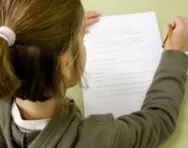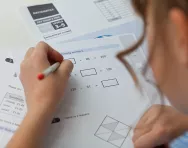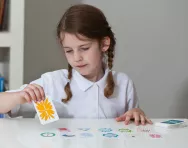Important update from TheSchoolRun
For the past 13 years, TheSchoolRun has been run by a small team of mums working from home, dedicated to providing quality educational resources to primary school parents. Unfortunately, rising supplier costs and falling revenue have made it impossible for us to continue operating, and we’ve had to make the difficult decision to close. The good news: We’ve arranged for another educational provider to take over many of our resources. These will be hosted on a new portal, where the content will be updated and expanded to support your child’s learning.
What this means for subscribers:
- Your subscription is still active, and for now, you can keep using the website as normal — just log in with your usual details to access all our articles and resources*.
- In a few months, all resources will move to the new portal. You’ll continue to have access there until your subscription ends. We’ll send you full details nearer the time.
- As a thank you for your support, we’ll also be sending you 16 primary school eBooks (worth £108.84) to download and keep.
A few changes to be aware of:
- The Learning Journey weekly email has ended, but your child’s plan will still be updated on your dashboard each Monday. Just log in to see the recommended worksheets.
- The 11+ weekly emails have now ended. We sent you all the remaining emails in the series at the end of March — please check your inbox (and spam folder) if you haven’t seen them. You can also follow the full programme here: 11+ Learning Journey.
If you have any questions, please contact us at enquiries@theschoolrun.com. Thank you for being part of our journey it’s been a privilege to support your family’s learning.
*If you need to reset your password, it will still work as usual. Please check your spam folder if the reset email doesn’t appear in your inbox.
Practical tips for preparing for SATs

For Year 6 children, SATs preparation is the main focus of both their school time and homework in the run-up to exam week in May. While a lot of ground is covered in class, parents also play an important part in helping their children prepare for the tests. We asked Shelley Welsh, a Year 6 teacher and author of Letts revision guides and workbooks, for her advice on how you can support your child in their SATs prep.
Work out a timetable that suits your child
Your child's teacher should give you an indication of how much time you should be putting into preparing for SATs at home, but be guided by your child when you’re working out a revision timetable.
‘Some children prefer a little and often approach, doing 10 or 20 minutes’ work a day; others prefer to get stuck into a longer revision session on a Saturday morning,’ Shelley explains.
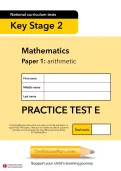
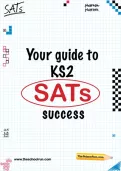
Prepare your child for KS2 SATs today
- Your guide to SATs
- KS2 SATs revision course
- 10 SATs practice papers in English & maths
Mix it up
Working on sample papers is an important part of SATs revision, helping children get used to the format of the tests, but don’t make these the sole focus of your child’s preparation. ‘Instead, try to offer variety in the form of revision guides and practice worksheets, and include some more practical tasks like going shopping and estimating the cost of the items in your trolley, or going over times tables while you’re in the car,’ says Shelley.
Use revision guides
The format of SATs changed in 2016. ‘Working through past papers from previous years is good exam practice, and it’s helpful to use revision guides and practice papers that reflect the new curriculum and style of testing to help your child prepare,’ Shelley advises. (TheSchoolRun has produced a complete set of KS2 maths and KS2 English practice papers in the new style, available to subscribers.)
Work on mental maths
Calculators aren’t allowed in maths SATs, so it’s vital to make sure your child’s mental maths skills are up to scratch. ‘One of the most important things you can do is help your child become really secure in their times tables, as this underpins so much of the knowledge that is needed for the maths papers,’ Shelley explains. As well as drilling your child in multiplication, try using visual aids like a colourful poster of times tables pinned to their bedroom wall. However, do remember that children also need to be fluent in written methods too.
Track their progress
All children like to see that they’re making progress, so involve them in marking their own practice papers, times tables and spelling tests and then recording the results. ‘You could do this in a really visual way, like using coloured pens and writing their scores on the family calendar so your child can see how they’re improving week by week,’ Shelley suggests.
Practise working under pressure
With strict time limits for SATs papers, it’s important that your child gets used to working at speed. ‘Even some very able children may find it difficult to pace themselves well, so get them used to working against the clock,’ says Shelley. ‘Encourage them to keep an eye on the clock and manage their time accordingly: rather than spending too long on a challenging question, move on and come back to it at the end. This will help them to use their time wisely so they get through all the questions.’
Combine independence and support
Your child needs to be able to work independently when they’re preparing for SATs – after all, they won’t have any help on test day – but they also need your support, so try to achieve a balance when you’re revising at home.
‘For example, if your child has completed their homework independently, ask them to note down any areas of confusion so they remember to ask their teacher for support,’ Shelley suggests. ‘You could also help them to work out the problem themselves, remembering to use your child’s home-school diary to communicate with the teacher if need be.’
Involve the teacher
It’s not always easy to work out which areas your child needs the most help with, so ask their teacher for guidance. ‘Sometimes, your child will have a very different idea from their teacher about where their strengths and weaknesses lie, so it’s a good idea to talk to the teacher about which areas need consolidation, then you can focus on those at home,’ Shelley explains.
Build in down time
SATs are important, but preparing for the tests shouldn’t take over your child’s life. ‘Encourage them to continue with clubs, sports and other hobbies that they enjoy, and have at least one day a week that’s completely free from school work,’ says Shelley. ‘Above all, help them to understand that SATs are a positive opportunity to show what they’ve learnt, and can even be fun. Try to keep everything in perspective, as a nervous child may not do their best.’
Matched to the requirements of the National Curriculum, Letts KS1 & KS2 Revision Success prepares children for tests with confidence, with a range of revision guides, practice workbooks, practice test papers and 10-minute tests. For more guidance and support, check out Letts Revision.
